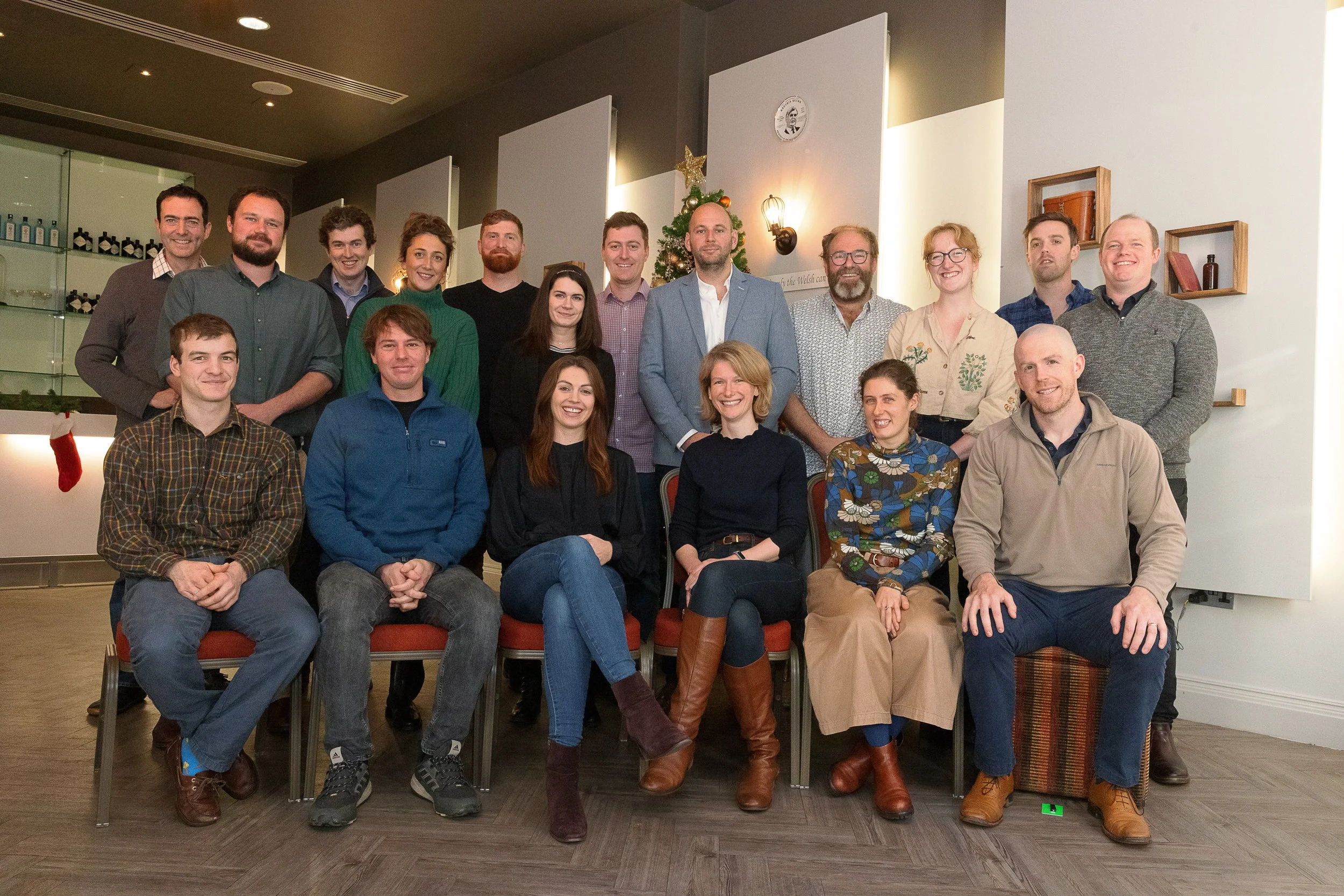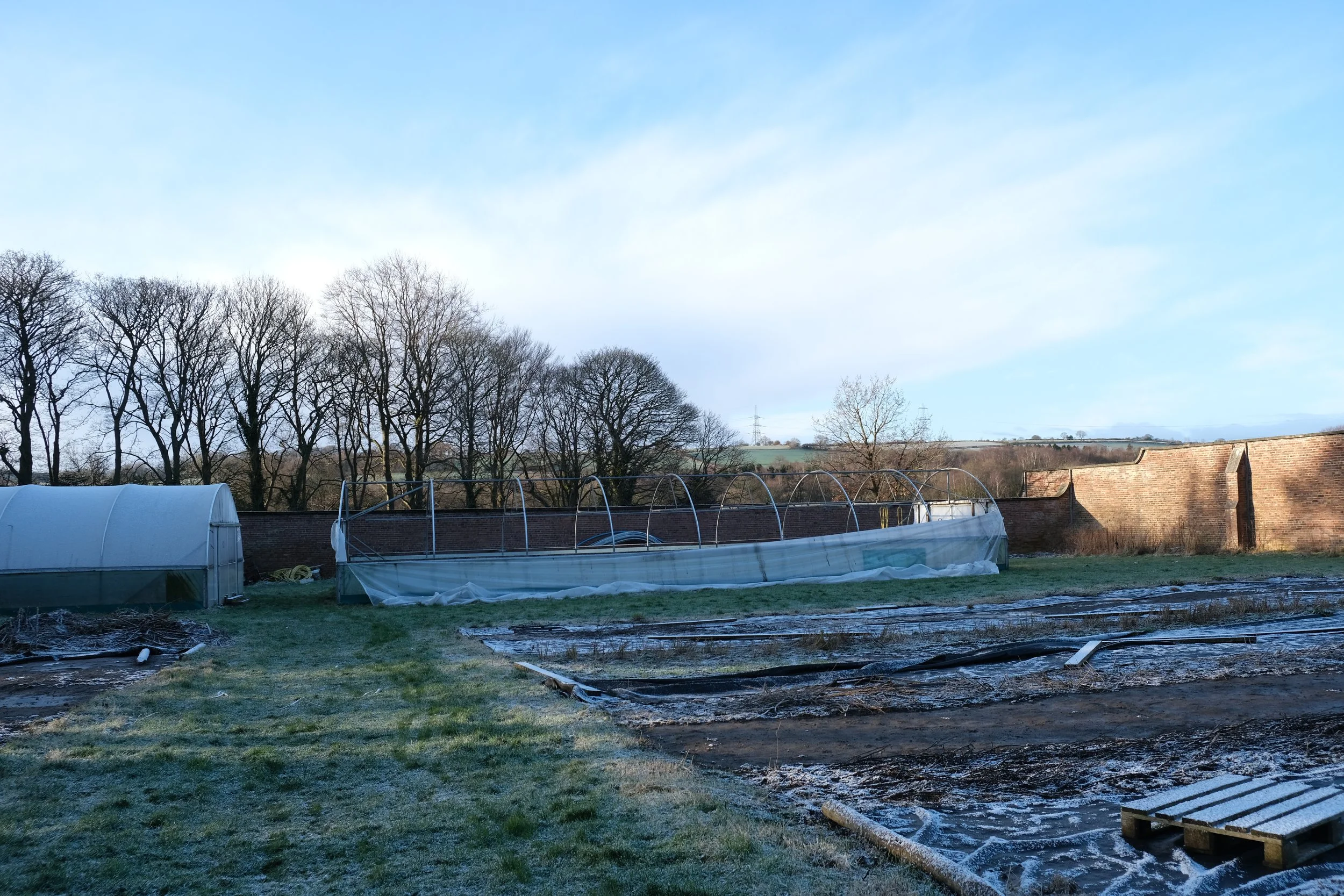Chapter 1: A disaster unfolds
Back in November 2022, I stepped up onto the stage to shake hands with the Duke of Gloucester to receive my Nuffield farming scholarship, sweating a little *too* much in a suit I bought from M&S a few months prior. I was absolutely sure that the next 18 months were going to propel me into transforming our modest 2-acres of rented land in County Durham into the most brilliant example of a climate-adapted flower business that you’ve ever seen. I probably should have seen it coming, that roughly two weeks later we would have been informed by our landlord that she wanted the land back, but as a bordering-on-naive optimist I didn’t. And I was sideswiped by the sudden need to depart this space that had become our own - just not in deed title.
But in many ways, starting a Nuffield Farming Scholarship maybe required a clean slate? Has there ever been a better opportunity to demonstrate how to build a genuinely climate-adapted business from scratch, than to well… build it from scratch? I would recommend, dear reader, that you bed in for the journey that will take us across continents, to vineyards, flower farms, dairy farms and who knows where else as I reestablish a business.
If you haven’t yet met me, all you need to know is that I lead with a) a lot of optimism (bordering on lunacy), and b) have a new-found belief that I can do anything I put my mind to (therefore furthering the lunacy). Part b came as an almost direct result of the Nuffield scholarship and the incredible community of people who I now get to call friends. The good news for you is that you get to watch as I fail, almost in real time, and almost certainly with great hilarity. The bad news for me is that I’m going to set myself up to fail on a semi-regular basis in order to learn how to do the things that I want to do.
The wonderful Nuffield 2023 scholars back in November 2022 on our first day meeting one another.
What exactly do I want to do? That would be; set up a new flower farm that works for the triple line - environment, community and of course - me. I need my business to be economically viable, but I *will not* do that at the expense of the environment. Losing the land has provided an opportunity for me to start from the very ground up, and to share exactly how i’m going to achieve that as I go. I’m an over-sharer. Anyone who follows one of my *many* social media accounts will know that.
The second piece of good news is that I hope, this blog and the accompanying podcast - Flowers For The Future - will detail how exactly to do what I want to do. Or at least, the various attempts I’ll make to live a life where my values are not compromised *too* much by my ambition.
Who or what is a Nuffield Farming Scholarship?
In their own words:
Nuffield Farming Scholarships Trust is a registered charity with an aim to inspire passion in people and develop their potential to lead positive change in farming and food. We award life-changing scholarships that unlock individual potential and broaden horizons through study and travel overseas, with a view to developing the farming and agricultural industries.
Each year Nuffield Farming Scholarships are awarded to approximately 20 deserving individuals working in farming, horticulture, forestry or any other countryside and ancillary industry - or are in a position to influence those who do. The first scholarships were award in 1947 and since then over 1,000 Nuffield Scholars have completed their studies and travel to make an impact on farming and food.
I’ve been very kindly sponsored by the John Oldacre foundation to the tune of £13,500 to study my research topic, and to join 18 other remarkable and wonderful people in learning about the international farming landscape.
What is MY problem?
Behind every good piece of research is a problem. And ours came in fist-fulls last year.
The more I began to understand and read the land, the more I realised quite how screwed we are unless we make some rapid changes to the way we work. It hit me hard in February 2022 when Storm Dudley came and quite literally cleaved one of our 60ft polytunnels in half, skinning it as it went and ripping pinned landscape fabric out of the earth and wheeling it into the trees of the woodland that surrounded our growing space. This was followed by the plant-ending drought of summer 2022 in which temperatures in the UK reached an all-time record high of 40.3 degrees in Cambridge.
I think there are only so many times you can pin landscaping fabric down into the rock hard clay before you begin to question your own sanity. Particularly on a windy day - if you know you know. I became increasingly frustrated by a sense that we were working in opposition to the land. For all that we had done already - using cover crops like phacelia to provide forage for the bees, growing over 200 different species, leaving rewilded patches of native wildflower meadow to the butterflies, moths and insects, it still wasn’t right.
I found out about the scholarship from Mum, helpfully about 6 days before the deadline, but my research subject came quickly like ink from a frightened squid. Pouring on to the page with pace because it had been furtling there for months now. I wanted to know whether the British cut flower industry as a whole is prepared for a 2 degree warming world. If not, to learn from others in countries who are already struggling on the front line to understand what they are doing to prepare. I suspect the answer is that we’re not even thinking about it properly yet, but i’ll let you know next year when I write up my report on it.
The devastation of Storm Dudley - a sight that flower farmers and growers across the UK will recognise well.
What am I doing about it and what comes next?
Next comes the travel. The podcast. The adventure. For my research I am travelling around the UK, to the Netherlands, Kenya, New Zealand and hopefully (budget be willing) in Europe too. Over the next year I’ll be sharing interviews, thoughts and learnings from across the world about all things climate change adaptation, horticulture and farming right here. Subscribe to the Verde Flower Co. newsletter if you want these blog posts directly to your inbox, and drop me an email if you have any questions - i’m always happy to chat!
First up… lets talk to Ben, a British flower grower on the south coast of England.




